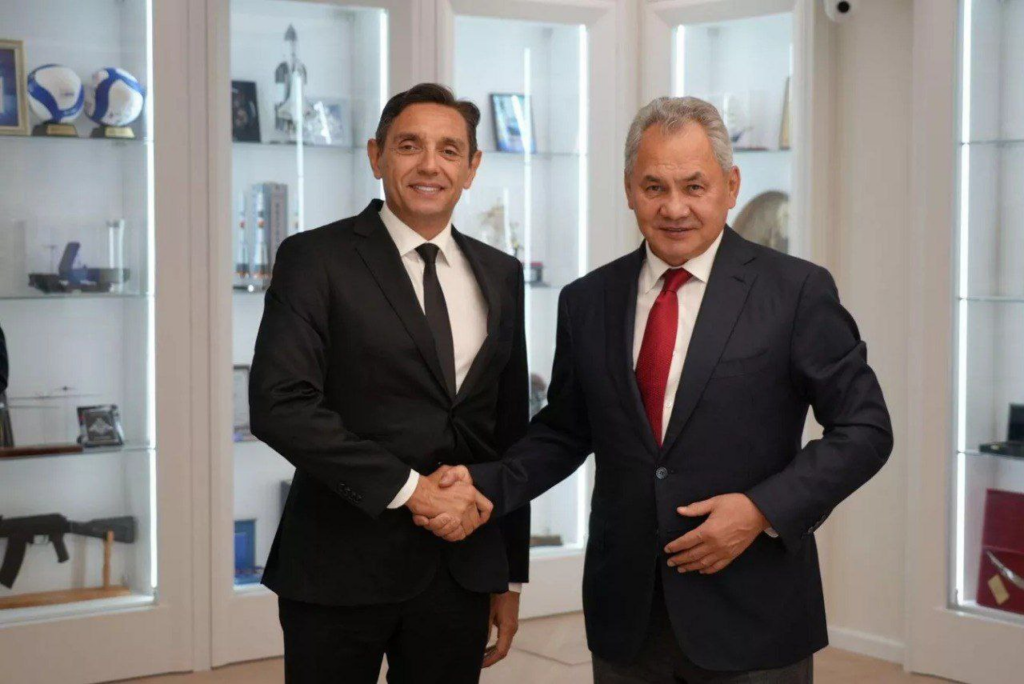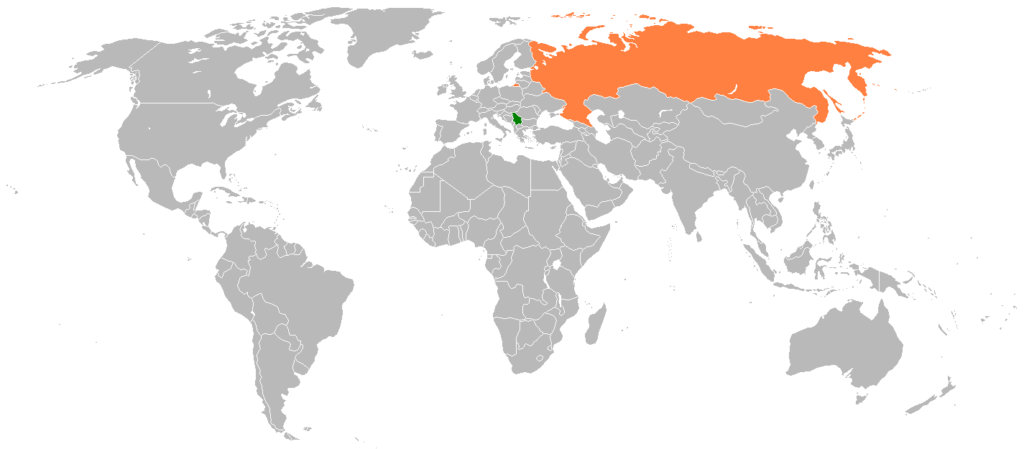Moscow, March 24, 2025 – Russian Security Council Secretary Sergei Shoigu met Serbian Deputy Prime Minister Aleksandar Vulin in Moscow this week. Their discussions reinforced the deep relationship between Russia and Serbia. The meeting happened just days before Serbian Prime Minister Aleksandar Vučić’s scheduled talks with European Commission President Ursula von der Leyen in Brussels. This timing underscores Serbia’s delicate diplomatic balancing act.

Serbia Stands by Russia Amid Western Pressure
Shoigu praised Serbia for resisting Western pressure and refusing to join anti-Russian sanctions. The European Union and its allies imposed these measures after Russia’s military actions in Ukraine. Shoigu highlighted Serbia’s steadfast stance and described the relationship as one built on mutual respect.
“We value the fraternal relations between our nations,” Shoigu stated. “Serbia has stood by Russia despite international challenges, proving the strength of our bond.”
Serbia’s refusal to follow the EU on sanctions has strained its membership negotiations. Many EU leaders expect Belgrade to align more closely with Western policies. This issue will likely be central to Vučić’s upcoming meeting in Brussels.
A Strategic Meeting for Both Sides
The timing of the Moscow meeting is significant. Russia, facing global isolation, seeks to strengthen ties with its remaining allies. Serbia benefits by maintaining a strong partnership with Moscow while engaging with the EU.
Analysts believe this meeting serves multiple strategic purposes. For Russia, it reinforces its influence in the Balkans, a region where Western and Russian interests often clash. For Serbia, it sends a message to the EU—it will not be pressured into choosing sides easily. By engaging with both Moscow and Brussels, Serbia maintains a level of diplomatic flexibility.
Serbia’s Geopolitical Balancing Act
Serbia’s historical ties with Russia remain strong. Many Serbians view Russia as a traditional ally due to shared Slavic roots, cultural connections, and historical support. Moscow has backed Serbia in key moments, including its opposition to Kosovo’s independence. In return, Serbia has maintained a neutral stance on many global conflicts, avoiding direct confrontation with Russia.

However, Serbia also aspires to join the EU. European integration would bring economic benefits, increased investment, and political stability. But EU leaders demand clearer alignment with Western policies, particularly regarding Russia. This ongoing challenge places Vučić in a difficult position.
What’s Next for Serbia?
As Vučić heads to Brussels, the stakes are high. He must reassure the EU that Serbia remains committed to integration while not alienating Russia. The European Commission will likely push for more decisive action on sanctions and other foreign policy matters.
The outcome of these talks could shape Serbia’s future direction. If the EU hardens its stance, Serbia may face pressure to choose between its Eastern ally and its European ambitions. Alternatively, Vučić might leverage Serbia’s relationship with Russia as a bargaining tool to secure better terms in EU negotiations.
For now, Serbia continues to walk a fine line. Its balancing act between East and West remains one of the most intriguing geopolitical strategies in Europe today.
35,204 hits




